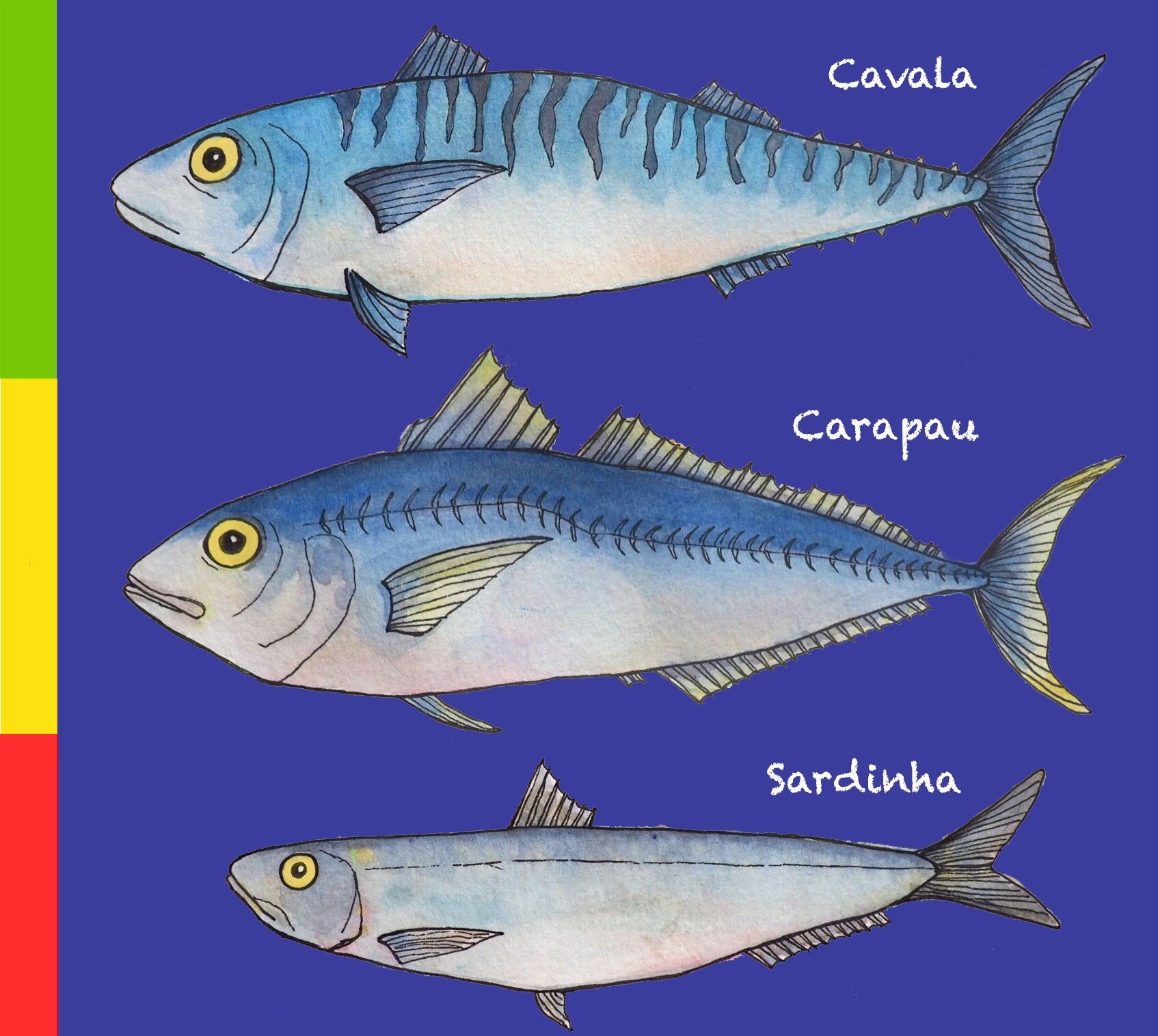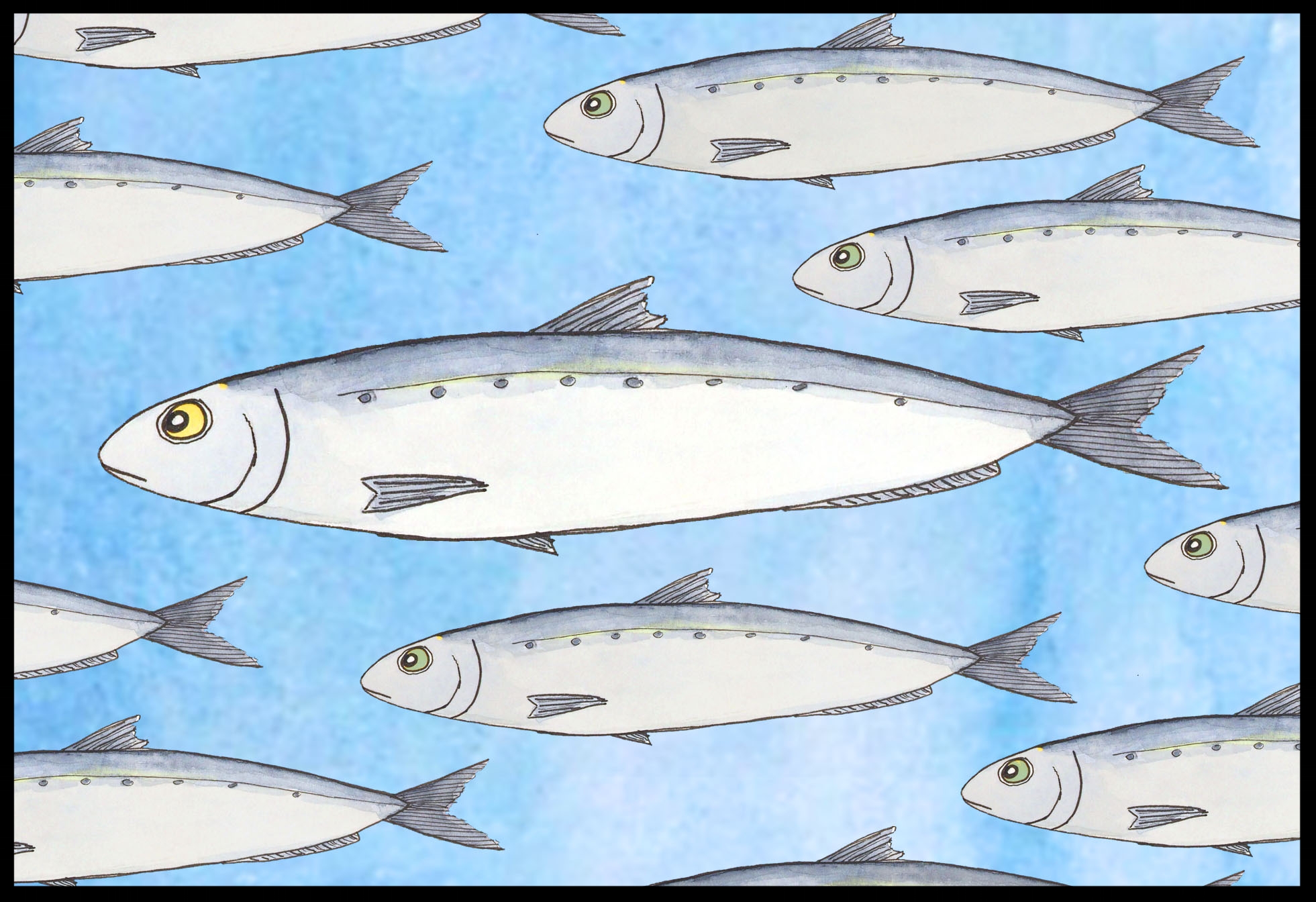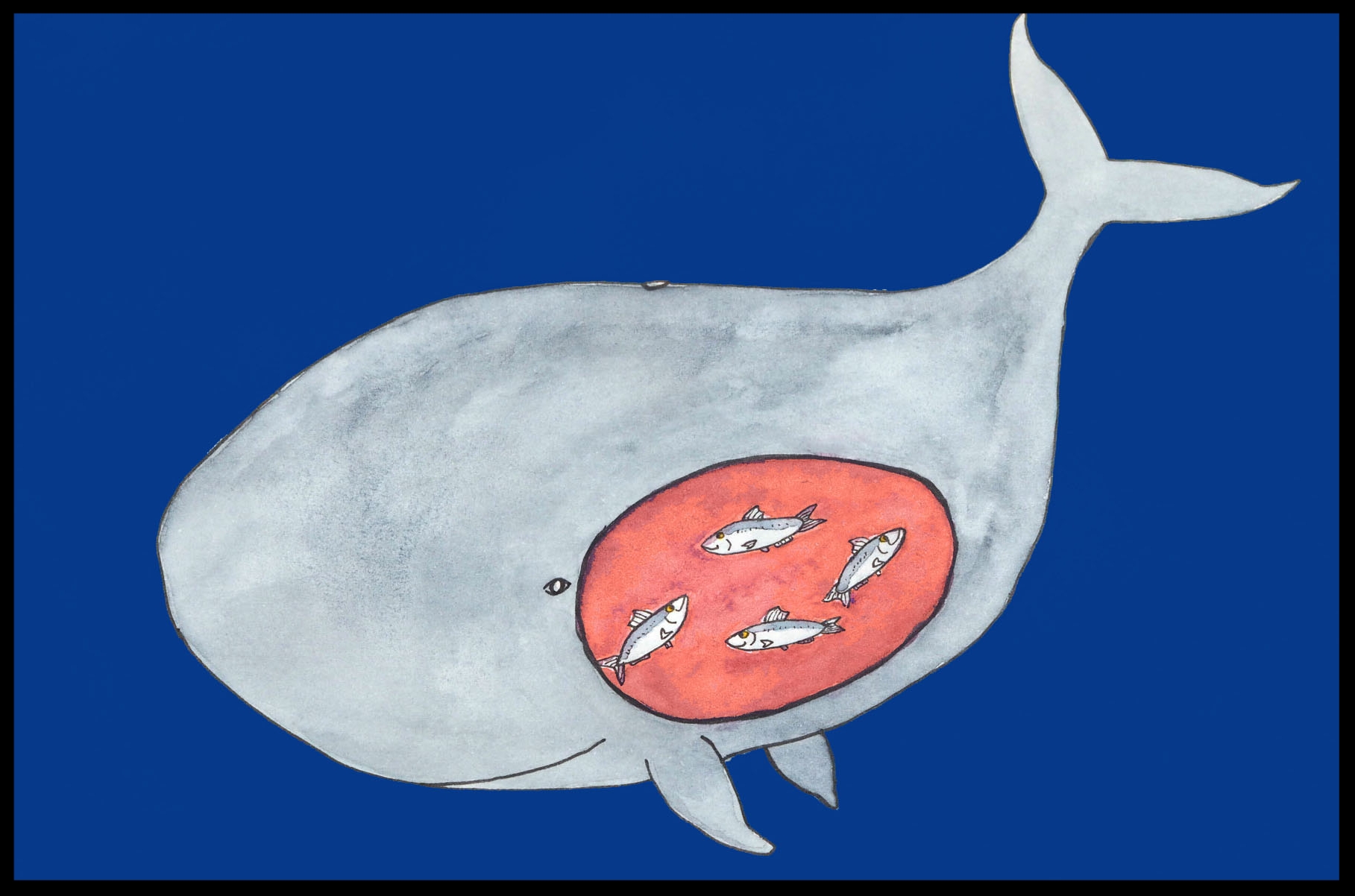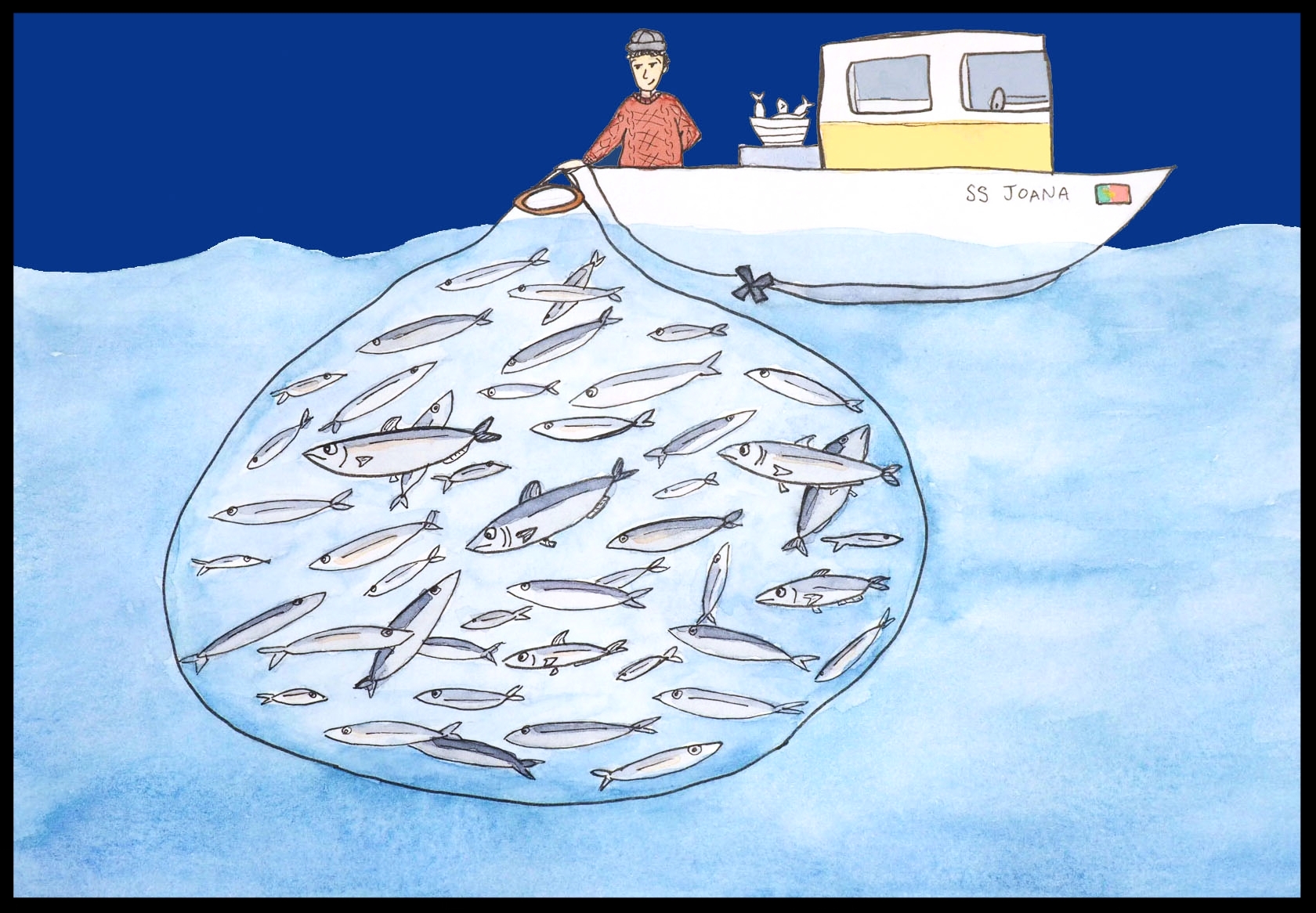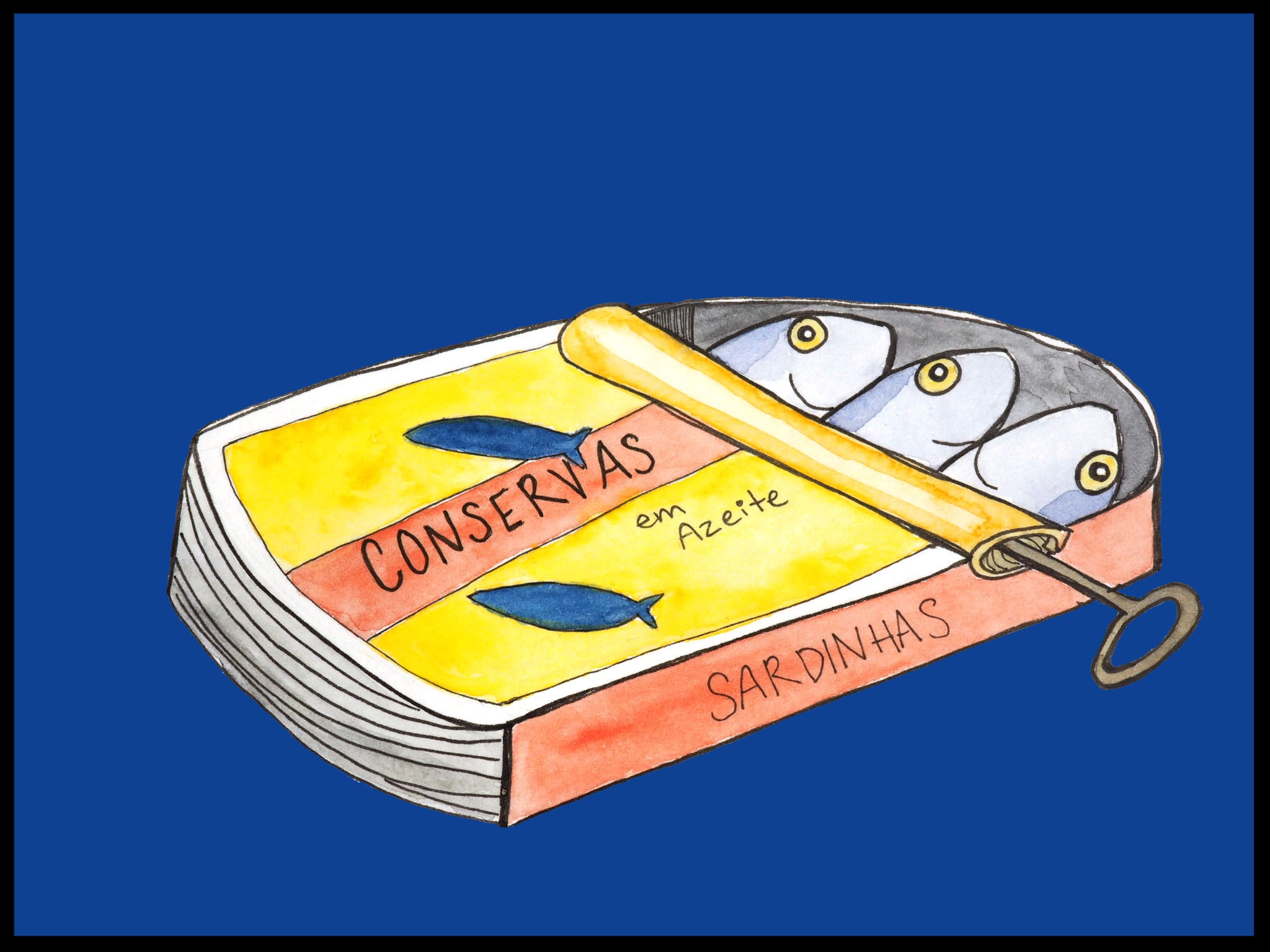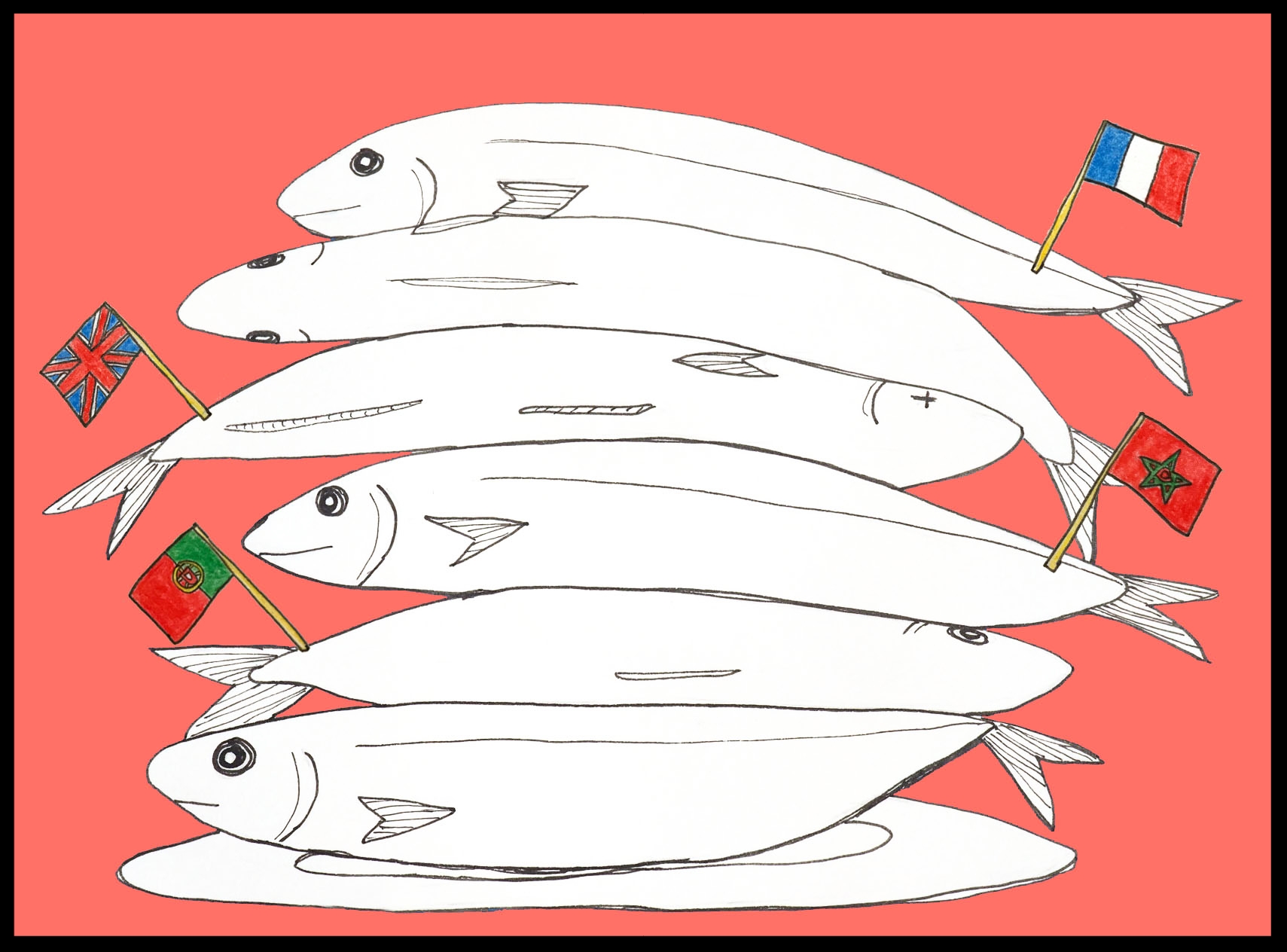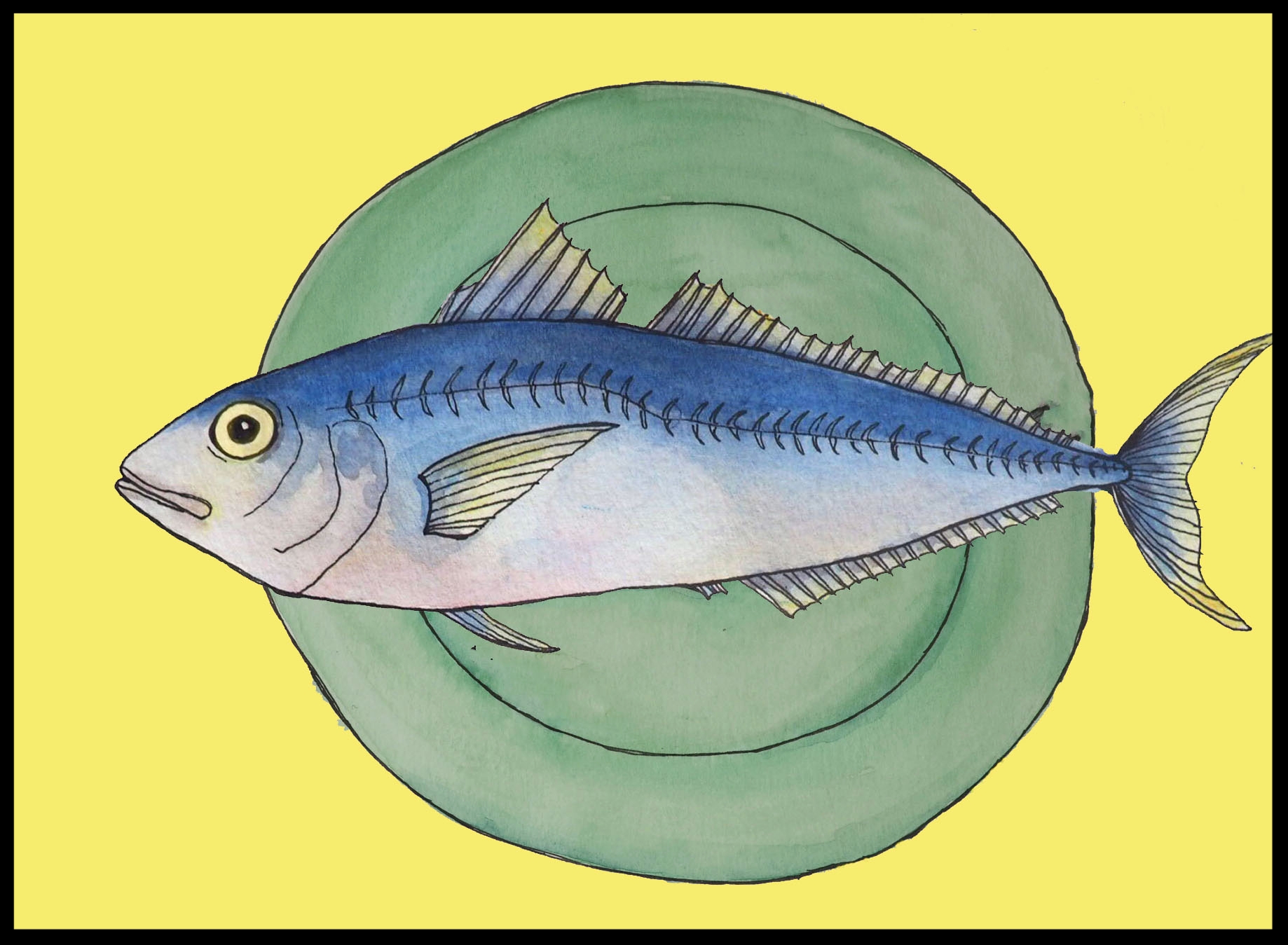SARDINHAS. Sardinas. Sardines.
The small, succulent fish decorating dinner plates across the Iberian peninsula, particularly during festival season in Portugal. Oily, decadent and hopelessly in a can.
But are they really as common as they might appear?
What’s the story of the little fish?
The Sardine
The European Sardine (Sardina pilchardus) is a small, short-lived migratory pelagic schooling fish that has a healthy diet of plankton.
A Meal of Others
They belong to a category of small foraging fish, and are a critical meal for many larger marine creatures, primarily the jolly Common Dolphin, seabirds, and bigger fish. And they’re also great for us humans: Sardines are high in omega 3-fatty acids, which are important for our health.
The Bounty of the Past
Historically, Sardines flourished in the waters off Portugal, and were gathered by the bounty with vast encircling purse seine nets. But the local Iberian sardine stock has fallen steeply recently: from 106,000 tonnes (2006) to 22,000 tonnes (2016)… that’s about an 80% decrease!
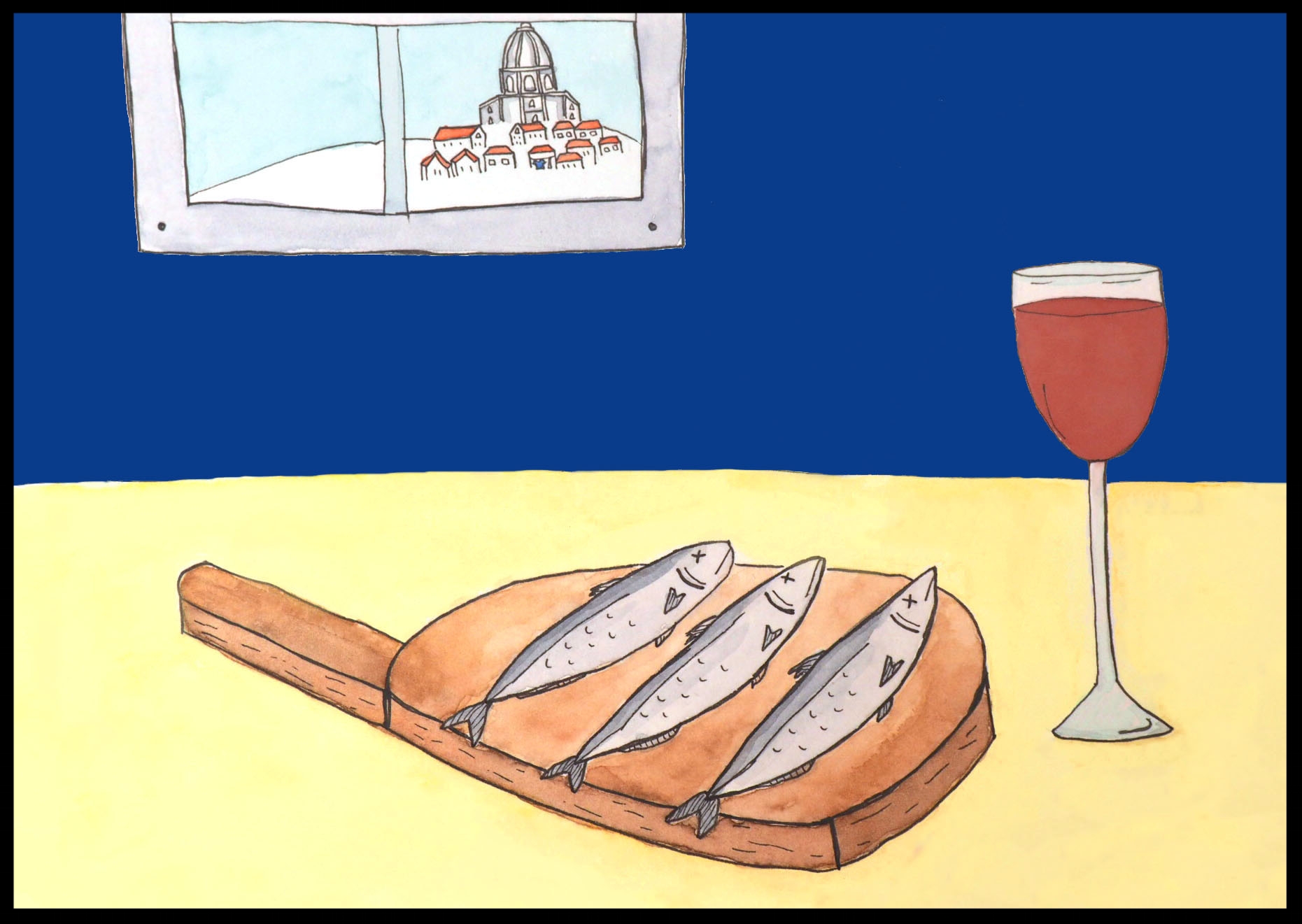
Tiny Treats
For decades, Sardines have been the treat of choice of local diners; and once tourists tested the tasty waters of Portugal, they also got a flavor for the little fish, particularly canned, to take home and share with friends…
Cannery Craze
Much like the cannery craze of Northern California: as the market for sardines broadened, and fishermen had to dig deeper to fulfill the growing canning craze, and unfortunately, the fishery couldn’t handle the strain, and collapsed. This means that the local populations of Sardines are in dire straits, and cannot reproduce themselves sustainably.
Major Migrations
In fact, many of the Sardines served in the South now actually come from somewhere a lot closer to the Queen: warming waters have driven the populations North, and they are now more often found off the UK, France, (and Morocco) in larger quantities; off the coast of Portugal, alas that’s not the case. So it seems, many of the “local sardines” that UK tourists are enjoying on their trips to Lisbon are in fact caught off their own British docks, and are shipped South to meet the demand. These little fish aren’t quite as “local” as they’re advertised.
And these fish need HELP!
But What Can You Do?
Quite simply – don’t buy sardines. If we change the demand, the market will move to change as well.
Shift your gaze to hearty Mackerel: the slightly larger, super tasty & fatty-acid-filled cousin, whose stocks are much healthier locally. Here, pick the “Cavala” for Atlantic Mackerel, followed by the “Carapau,” or Horse Mackerel. And pick those caught by Purse Seine nets rather than trawl nets! These fish taste especially delicious off a grill, and can also be found in the delightfully decorated “Conservas” cans that you can also take home to friends and family!
